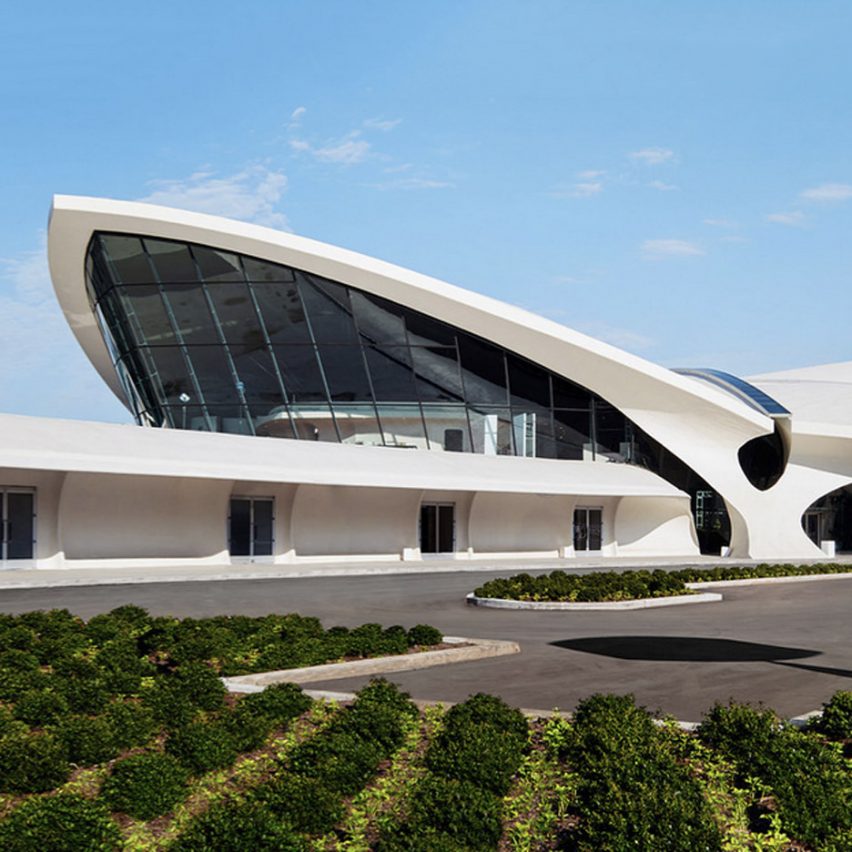
Nonprofit organisation USModernist documents, promotes and preserves North America's modernist architecture. Here, director George Smart names his ten favourites including an airport terminal by Eero Saarinen and a beach house by John Lautner.
Based in Raleigh-Durham, North Carolina, USModernist has been working since 2007 to document modernist buildings, some of which are under threat, across the continent.

"Just like stock car racing or sushi, modernist architecture is not for everybody," Smart told Dezeen.
"There are some people that just don't like it, and that's fine," he explained. "The important thing is that, because there are so few of them, that we recognise that many of these houses are really sculptures that you can live in".
"We wouldn't take a piece of art and go tear it to pieces. Similarly, we want to try to keep these houses, which are like works of art, from being destroyed."
Smart noticed a particular uptick in threats to modernist buildings in the 2000s, which prompted him to found USModernist. Now the organisation has documented upwards of 8,000 buildings.
"Modernist architecture is very optimistic," he said. "It tends to point us towards a future that's going to be better and happier."
"Most people who don't like modernist houses have never spent the night in one, they just don't get the vibe that is brought about by designing a house differently," he continued.
"I think people who know and love these houses and buy them just adore the feeling that their house gives them."
USModernist also has a huge, free-to-access digital library of 20th-century architecture magazines as educating the wider public about the importance of these buildings is central to USModernist's goals.
"We want to avoid what I call the Priscilla Presley syndrome," said Smart. "Priscilla, wife of Elvis, who took a perfectly wonderful John Lautner modernist house, and turned it into this Italianate villa, when what she should have done is just gone out and bought an Italianate villa."
Read on to discover Smart's favourite 10 modernist buildings in the USA (plus one in Mexico):
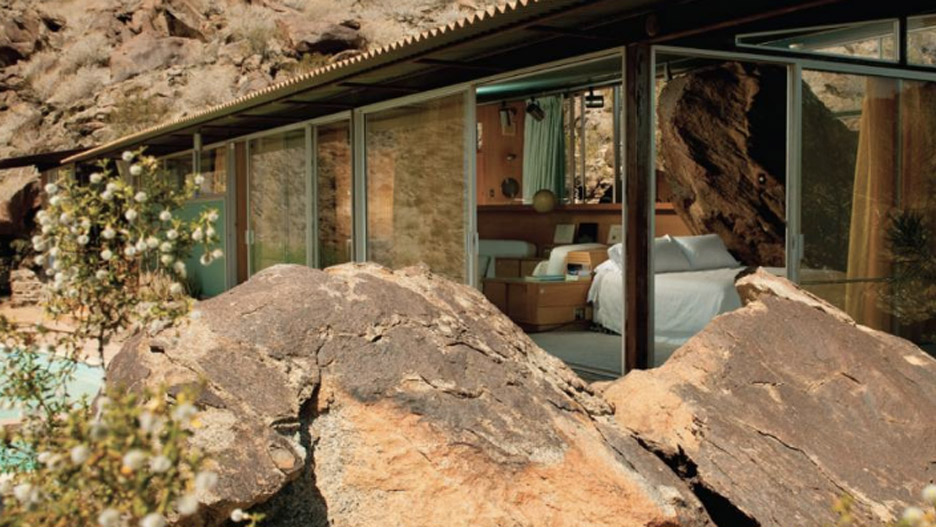
Frey II in Palm Springs, California, by Albert Frey
"This last, final home of Albert Frey is the perfect small weekend getaway with one of the best views in California (above and top). It is also an incredibly efficient use of space and was built around a giant rock, which sits in the living room.
"On a more reverent note, there are people, including myself and the architecture curators at the Palm Springs Art Museum, who consider this 1964 house to be the high temple of desert architecture, as it is the epitome of a building integrated into the earth around it."
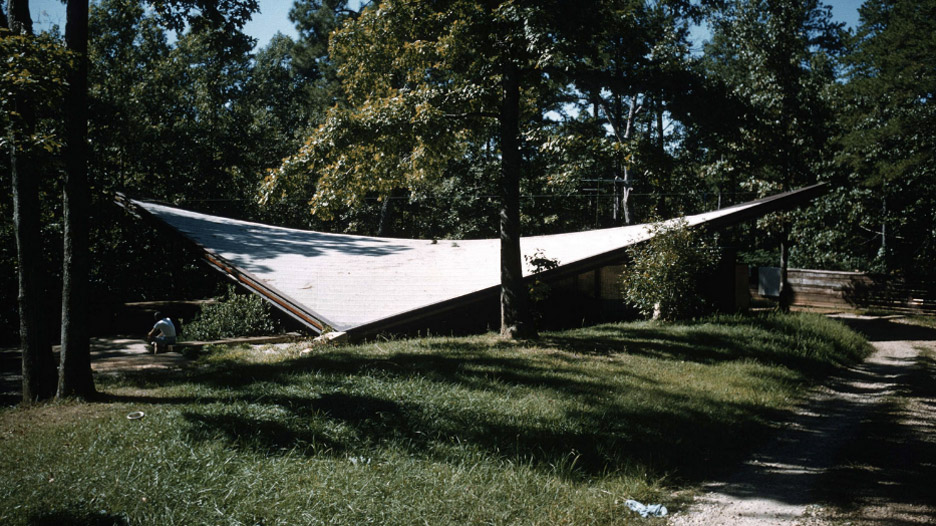
Catalano House in Raleigh, North Carolina, by Eduardo Catalano
"Argentinian professor Eduardo Catalano created one of the first hyperbolic paraboloid residences in 1954, which instantly became an international sensation.
"The house was tragically destroyed in 2001 after years of neglect. This loss inspired the creation of what became USModernist. Bold, dramatic and fun to live in, it continues to amaze us, even 20 years after its demise."
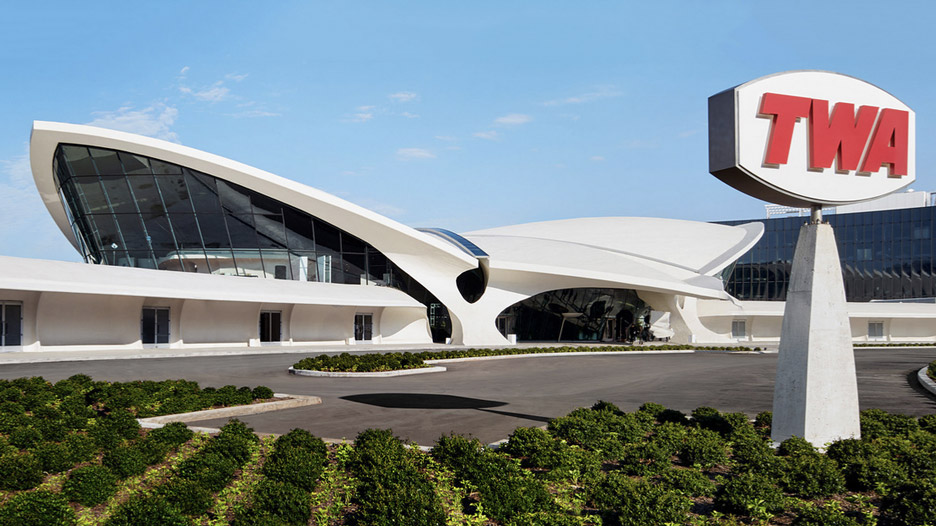
TWA Flight Centre at JFK Airport by Eero Saarinen
"The recent renovation, restoration and addition to Eero Saarinen's TWA Flight Centre at JFK Airport is one of America's finest restoration projects. The Port Authority of New York and New Jersey get huge credit for not tearing the building down in the past 30 years.
"Instead, they kept it in mothballs until the right developer could come along. And the right developer did. The main terminal, plus the two new hotel wings, make for a perfect overnight stay – but the real secret is the 50,000-square-foot underground conference facility designed by Lubrano Ciaverra, which has barely been covered by the media. It's the only major conference facility at the airport."
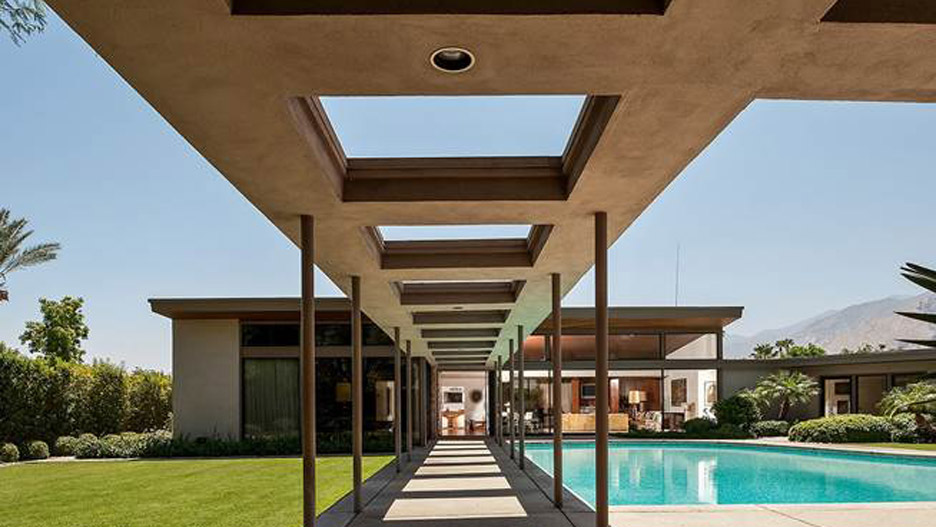
Frank Sinatra's Twin Palms House in Palm Springs, California, by E Stewart Williams
"In 1947 Frank Sinatra commissioned the first of a couple of Palm Springs houses, this one by E Stewart Williams. It put Williams on the map as an up-and-coming architect.
"It was famous for a rollicking fight that Frank had with his then-wife Ava Gardner; you can still see cracks in the bathroom from when she threw a bottle at him. Where most living rooms had a phonograph and radio console, this one has professional audio recording capability built-in.
"I think it's an urban legend that the pool is shaped like a piano, it's just a coincidence. The house is open for Modernism Week every year, for tours and parties (where you'll find us); the rest of the year, you can rent it."
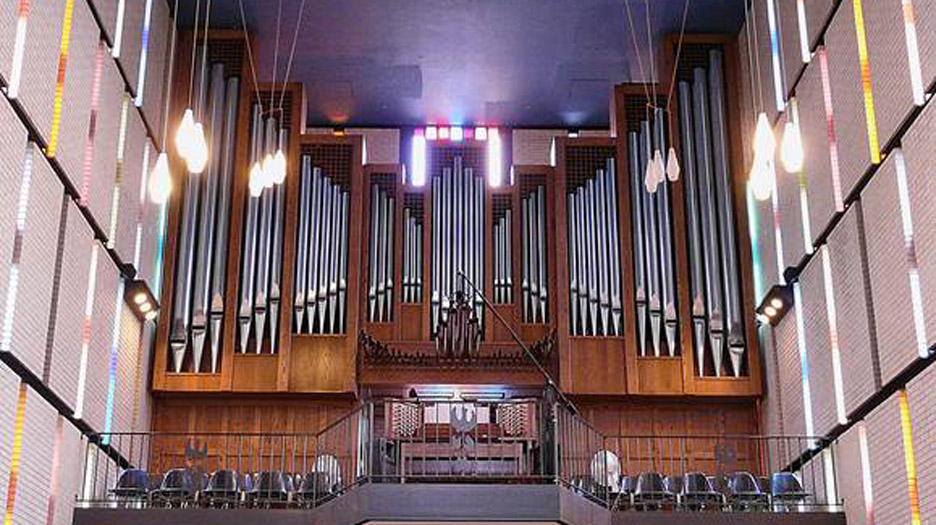
Holy Comforter Lutheran Church in Belmont, North Carolina, by Odell Associates
"This tiny 1959 church is way off the beaten path, about a half-hour from Charlotte in Belmont. Less known than others on this list, it was designed by Odell Associates but the real genius came from the project architect Charles Lyman Bates.
"His geometric stained-glass panels throughout the interior create a modernist spirituality in a way that still feels entirely original. The feeling I got, walking in, was a spiritual combination of religion and progress; the space is imbued with deeply gorgeous light. It's like God has a really swanky new house."
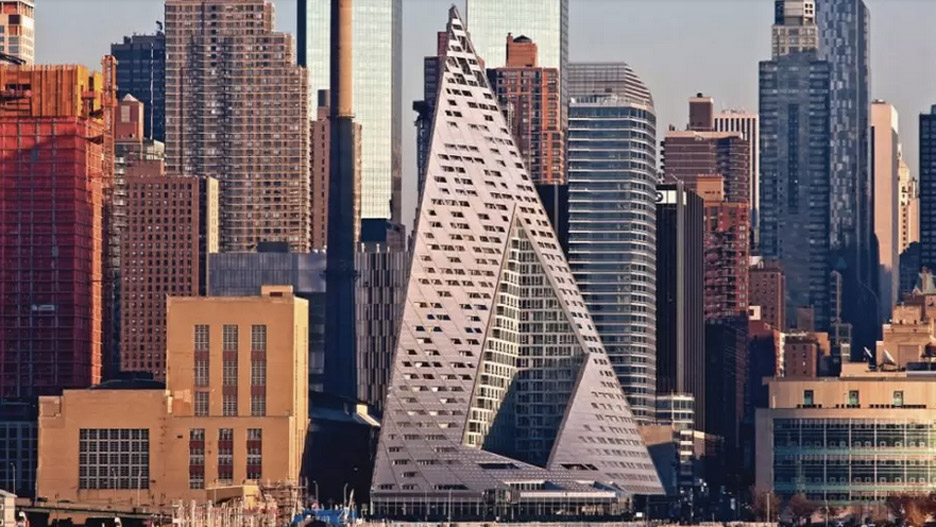
Via 57 West in New York City by Bjarke Ingels Group (BIG)
"All I want for Christmas is an apartment in this building, which sets the tone for a new era of modernism in New York City. Bjarke Ingels is this century's Frank Lloyd Wright and I'm going on record with that statement.
"It's fun to see the building from the air on Google as well as from the water if you're on an architectural walking or boat tour (often sponsored by AIA New York Chapter); it's a departure from any other building on Manhattan's skyline. On a personal note, please find me if you have a lead on getting in!"
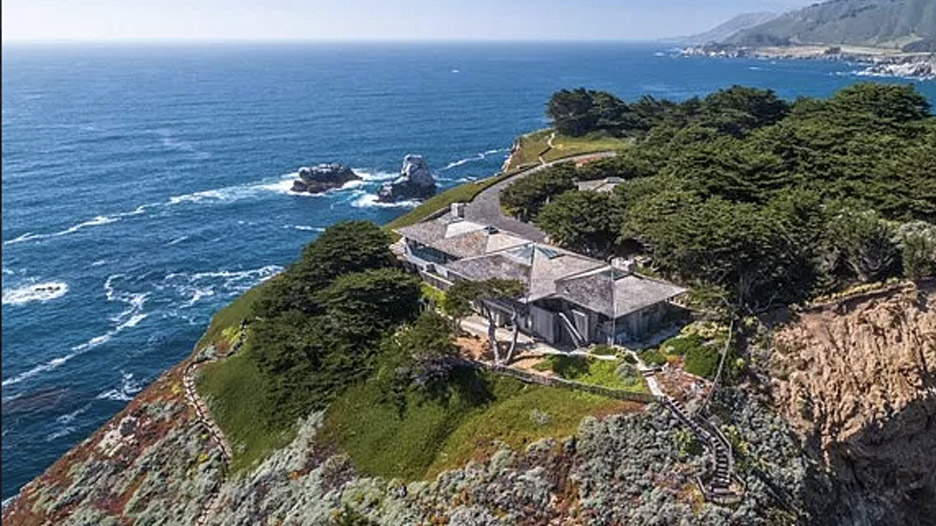
Ralph Atkinson House in Monterrey, California, by Gregory Ain
"The LA architect Gregory Ain was on the FBI's watchlist for decades because he dared to advocate on behalf of integrated housing in 1950's California. He and partner James Homer Garrott, an African American architect, designed this house in Monterrey in 1959 when they had an office in Silver Lake.
"On a tall and steep cliff over the Pacific, it is not an exaggeration to say that this home is one of the most beautiful, spectacularly sited houses in America.
"We often try to track these houses and to learn about their owners; this one was last sold in 2020 to a mysterious buyer, who has stayed anonymous with the help of a lot of lawyers and accountants. But if you're ever in the area, it is everyone's dream Instagram post."
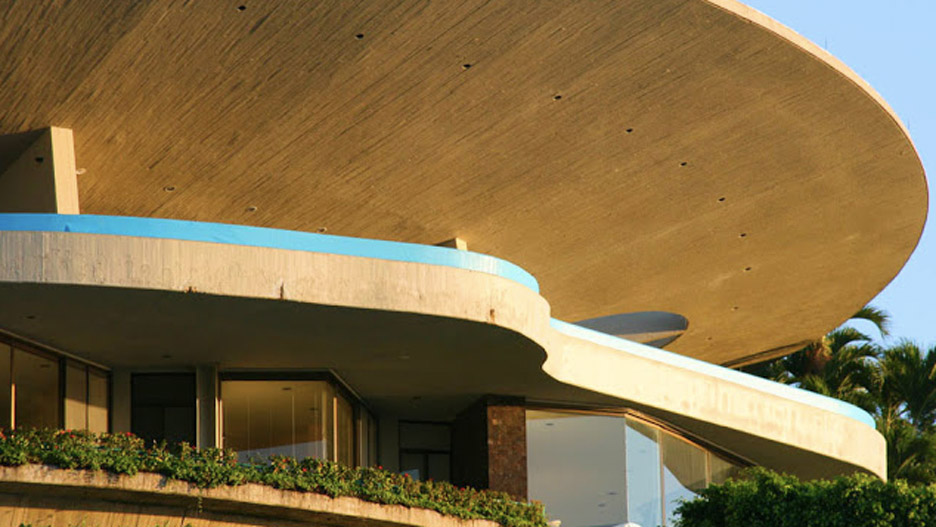
Casa Marbrisas in Acapulco, Mexico, by John Lautner
"Lautner in Mexico. John Lautner is the architect of record, the project architect is Elena Arahuete. Together they designed one of the most amazing residences in Mexico. Or anywhere, for that matter.
"It's an incredible fusion of sky and sea and water, even though it's high up on a cliff overlooking the ocean. Not open to visitors, the house has been featured in several Lautner documentaries."
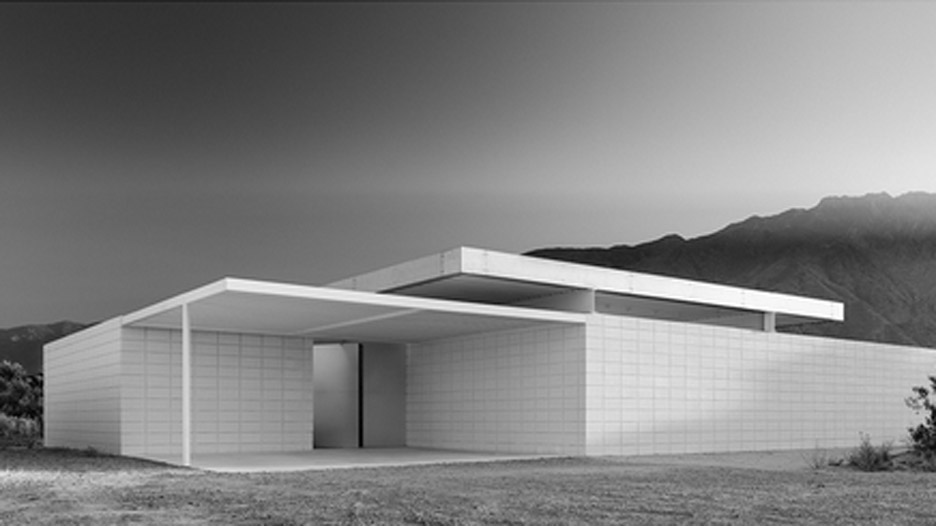
Desert House 1 in Palm Springs, California, by Jim Jennings
"This is a desert example of complete efficiency, a one-bedroom, one-bath house that perfectly bookends Frey's home of 45 year's earlier.
"Once inside the walls, you are part of completely relaxing, simple, minimal space, at the same moment inside and outside, very private, cloistered. I'd call it monastic."
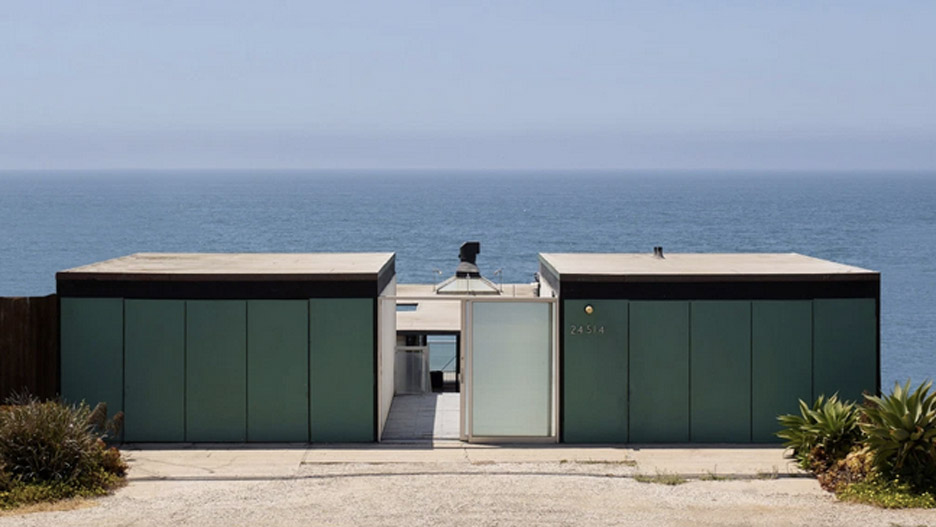
Victor and Elizabeth Hunt House in Malibu, California, by Craig Elwood
"Designer Craig Elwood had a red Ferrari and was a master of promotion in mid-century Los Angeles. Derided by the architecture profession, of which he was formally not a member, he rose to fame via three homes that were included in the iconic Case Study Houses published by Arts and Architecture magazine.
"The Victor and Elizabeth Hunt House in Malibu was immaculately restored in 2020 by Ellwood-whisperer Barton Jahncke, who specializes in Ellwood restorations, for its loving new owners and noted preservationists, Diane Bald and Michael Budman."
The post The ten best modernist buildings in North America are "sculptures that you can live in" appeared first on Dezeen.
from Dezeen https://ift.tt/3tNlrYj
No comments:
Post a Comment